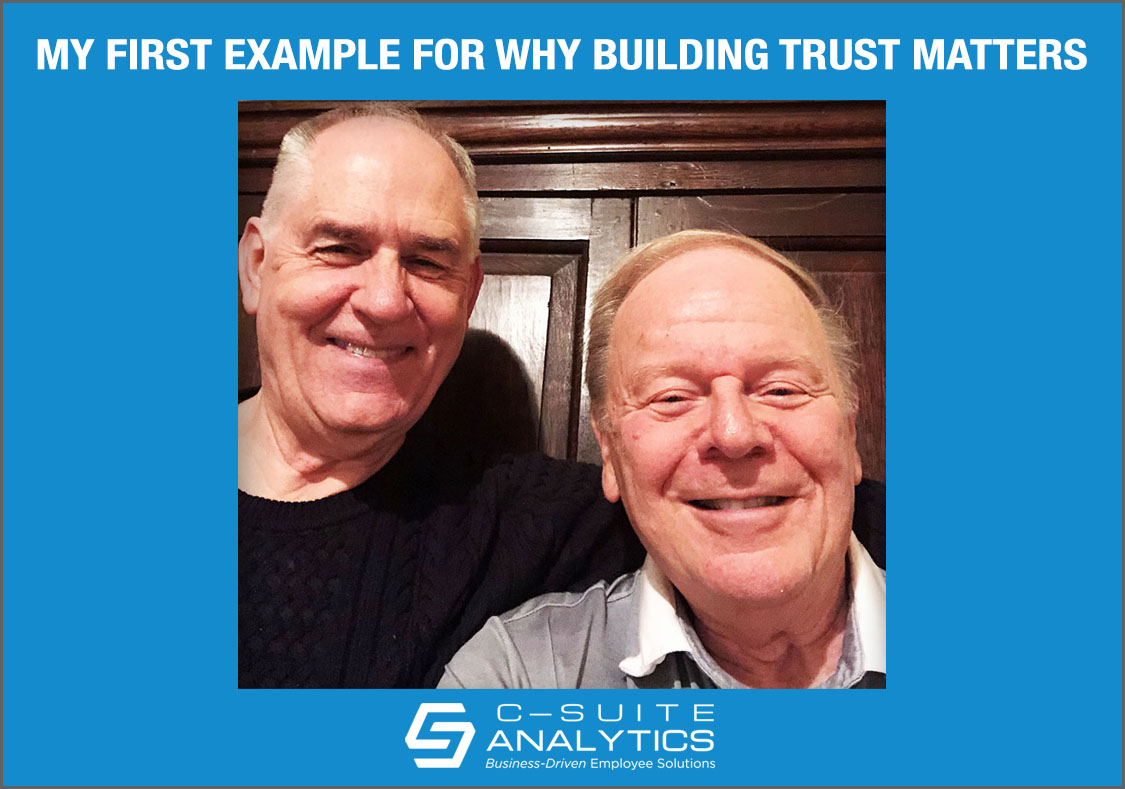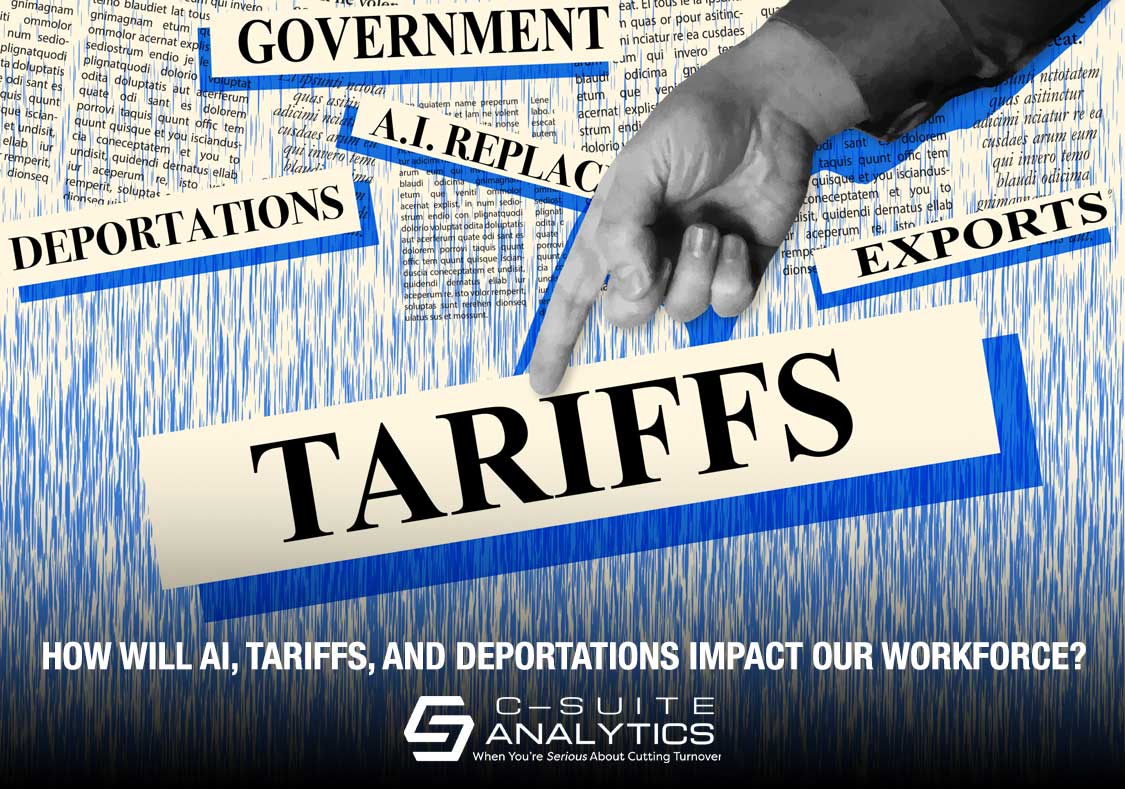AI, deportations, tariffs, and birthrate declines are reshaping America's workforce—blue- and white-collar alike. From baby boomer exits to AI disruptions, breaking down the workforce challenges no leader can afford to ignore.
My First Example of Why Building Trust Matters

Mentor is too weak, too common a word to describe Bob Bowen. I genuinely love the man.
Relationship Started When I was Climbing the HR Ladder
Bob was my first boss in my only “real” job, climbing up the HR ranks for a regional banking company. Now long retired, Bob and I enjoy visiting each other when we can. We talk about life and careers, and we gossip, confess, and tell the same old stories, and laugh out loud a lot. Without work I would never have known this man.
Bob had hired me and my peers, and we learned quickly to look up to Bob with such loyalty that when confronted with a problem we literally said, “What would Bowen do?” Picture a southern gentleman who listened far more than he spoke, who modeled emotional intelligence before it was called that, and who had our backs/fronts/sides in such ways that we always felt safe.
Lessons Learned from a Real Influencer
Bob was and is much more than a natural interpersonal genius, though. Savvy while powerfully disarming, he subtly managed his c-suite peers in such ways that today’s CHROs could only envy. I think Bob invented influence.
Bob also invented descriptive phrases for each of us, and he reminded me of several of them that night. One colleague who was exceptionally task-oriented “could keep busy in jail”. Another who worked more slowly, more deliberately “could only go 55”. And when Bob told me that night about firing one of my highly egotistical and stoic colleagues, he described that man’s unemotional response as “wooden Indian”.
Discerning HR “Likes” and “Dislikes”
We have re-lived our first meeting, over dinner at a Miami French restaurant where Bob ordered in the native language and I remember saying something like “I’ll have what he’s having”. A few hours later we sat in Bob’s hotel suite drinking shots of something and he asked what I liked about HR. Confessing that I disliked employee benefits, Bob slowly sipped his drink and then uttered what become a famous line between us:
“The only thing that exceeds my lack of knowledge about benefits is my lack of interest”
We then played out our “dislike benefits” game for years. One day I interrupted an executive meeting to hand Bob his just-delivered copy of Pension World, telling the others he had asked me to interrupt when it arrived in the mail. Bob got even, though, by silently notifying the Mississippi Bankers Association that I was a national benefits expert and they should invite me to speak at their annual conference. When I received the official invitation-to-speak letter I instantly knew Bob was the culprit, so I slammed the letter on his desk and between laughing outbursts said, “I’m going!” And I did.
First Example for Why Building Trust Matters
I write and speak about building trust a lot. And while I’m now armed with data that makes clear the number one reason employees stay or leave, or engage or disengage, is how much they trust their boss, I learned all I needed to know about building trust from that man.
Thank you, Bob, for making me a better thinker, relationship-builder, writer, jokester, family member, and for making me a better person. I owe you more than this blog, and several of our former colleagues who will read it feel the same, emotional way.



